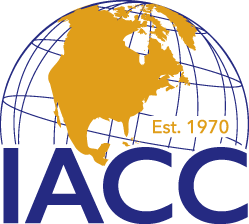

CFPB Updates Small Business Lending Rule FAQs
The Consumer Financial Protection Bureau issued updated frequency asked questions (FAQs) to help covered financial institutions comply with the small business lending rule. The FAQs address covered credit transactions, firewalls, record retention and more. Read them here.
The small business lending rule requires covered financial institutions to collect and report data on small business loan applications, including applications from minority- and women-owned small businesses. However, a Texas district court recently issued a nationwide injunction for compliance pending the outcome of the U.S. Supreme Court case on the constitutionality of the bureau’s structure.
The relief to delay enforcement of the rule now applies to all covered financial institutions in the U.S., whereas when an injunction was partially granted in July 2023 it only applied to the Texas Bankers Association’s members and the American Bankers Association’s U.S. members.
The injunction means banks do not have to comply with the rule until the U.S. Supreme Court issues its decision in Consumer Financial Protection Bureau v. Community Financial Services Association of America, Limited (CFSA), a case challenging the constitutionality of the bureau’s funding structure that originated in the 5th Circuit.
The Texas Bankers Association, including Rio Bank, filed suit to block the CFPB’s rule in April, “arguing that the CFPB shouldn’t have been able to finish the proposal because the 5th Circuit ruled the agency’s funding was unconstitutional,” Bloomberg Law reports.
The American Bankers Association joined the case in May.
In his decision, Judge Randy Crane of the U.S. District for the Southern District of Texas granted the injunction on the grounds that the plaintiffs would likely succeed in their challenge to the CFPB’s rule after the 5th Circuit declared the bureau’s funding structure is unconstitutional, according to the Bloomberg Law report.
Delaying enforcement of the rule and expanding it to covered entities nationwide does not cause harm to the bureau’s role to implement the rule because “the rule implements statutory changes made 13 years earlier and creates tiered compliance deadlines beginning October 1, 2024,” according to the court.
The court found that a limited injunction applying to only some groups covered by the rule would go against the statute behind the rule to apply lending laws equally to all credit applicants to avoid uneven outcomes.
Judge Crane also ordered that all deadlines for compliance with the small business lending rule are stayed for the plaintiffs until the Supreme Court’s final decision in the CFSA case.
President's Letter
Won't You Join Us?
By Valerie Ingold, IACC President
 I’m on my way to Malta as I write this. I’ve never been to Malta or considered it as a vacation destination before this trip, but since it’s the site of the 2023 FENCA Congress, I’m on my way. I’m looking forward to reuniting with my IACC and FENCA friends, old and new. While I write this, the IACC conference committee is busy planning two conferences for our members: our annual meeting in January at the Royal Palm in Miami, and an exciting Puerto Rico destination for our next annual meeting in 2025. Plus, we’ll gather in San Diego for our summer meet-up in 2024. Exciting times ahead!
I’m on my way to Malta as I write this. I’ve never been to Malta or considered it as a vacation destination before this trip, but since it’s the site of the 2023 FENCA Congress, I’m on my way. I’m looking forward to reuniting with my IACC and FENCA friends, old and new. While I write this, the IACC conference committee is busy planning two conferences for our members: our annual meeting in January at the Royal Palm in Miami, and an exciting Puerto Rico destination for our next annual meeting in 2025. Plus, we’ll gather in San Diego for our summer meet-up in 2024. Exciting times ahead!
I talk about our conferences a lot in my articles because I think they’re crucial to the IACC and our businesses. In between our conferences, the IACC offers online education and opportunities to touch base via committee meetings and virtual meet-ups. These are all necessary in keeping us connected to each other in the times apart. That being said, I don’t think anything truly replaces an in-person meeting. I’ve just flown across the Atlantic a week early to meet with some clients on my way to Malta. Phone calls and virtual meetings are valuable, but the in-person meetings I’ve just had were truly irreplaceable. The way we do business has changed. Video conferencing has largely replaced phone meetings and has led to scaled back travel, but I think there’s very little replacement for sitting in a room with someone for an hour. We may travel less these days, but it makes the in-person meetings that much more treasured.
To that end, we at the IACC are changing the way conferences will look going forward. We will be starting a little earlier on Wednesday with afternoon education, rather than opening the conference with our Welcome Cocktail Party. This will allow for more opportunities for fun and additional networking opportunities on Thursday. I am so excited about this change. It will increase the time available to meet new and old colleagues. Our business, at the end of the day, is built on relationships: my agency’s relationships with our clients, with our attorneys, with the forwarders and my relationship with all of you. The more time we have with each other in casual settings catching up, the deeper the relationships we cultivate.
The changes that are coming this January and beyond will make our conferences more fun, more memorable and more valuable. We’ll still have world-class education, but the schedule will be more relaxed and focused on the good stuff: time spent with each other—that’s why we keep coming back! If you haven’t been to a meeting yet or if you’ve been on the fence, this is the time to join us. If we haven’t seen you in a while, please come back. We’d love to see you again. And if you’re one of our regulars, I’ll see you in Florida this January, and Puerto Rico in 2025!
Meet Our New IACC Team Member
 IACC’s events, webinars, communications and more are fueled in part by a team of dedicated staffers. We are excited to welcome a new face to the lineup: Vanessa Feilan, IACC’s new accounts coordinator. We had a quick conversation with Vanessa to learn more about her and introduce her to the IACC membership.
IACC’s events, webinars, communications and more are fueled in part by a team of dedicated staffers. We are excited to welcome a new face to the lineup: Vanessa Feilan, IACC’s new accounts coordinator. We had a quick conversation with Vanessa to learn more about her and introduce her to the IACC membership.
Q: Why are you excited about working for IACC?
Feilan: I am looking forward to exploring the financial sector. I come from manufacturing so it will be fun to learn about a whole new industry.
Q: What are you responsible for in your role as account coordinator?
Feilan: I am responsible for organizing registrations and marketing for events and webinars, managing sponsors, hosting webinars, keeping the website up to date with information, coordinating meetings, following up on questions relating to membership via phone and email, and anything else that gets put in front of me. I like to stay busy!
Q: As someone coming into the collection industry with “fresh eyes,” what has surprised you?
Feilan: I’m surprised by how varied it is and how many different types of businesses conduct collections. I’m really fascinated by how everyone manages the rules state by state, country by country. There are so many moving parts to something that seems so simple.
First Member to Renew for 2024
Thank you for your continued investment with IACC. Without your loyalty and support, we would not be able to continuously provide our members with valuable benefits and actively develop our community. Put simply, you make what we do possible.
Have you renewed your membership for 2024? Visit our website to learn more about dues renewal. To inspire you, we’d like to celebrate the first IACC members to renew for 2023:
- Commercial Collection Corp. of NY (Agency)
- Wagner, Falconer & Judd, Ltd. (Associate)
Thank you to these members—and all our IACC members who help us support the commercial collection industry.
Factors at Play in the Focus on CFPB Reform

After the oral arguments in CFPB v. Community Financial Services Association of America Ltd. (CFSA) were held in October, reports say the U.S. Supreme Court is divided over how the bureau should be funded—through congressional appropriations or, as it is now, through the Federal Reserve. The case stems from a 5th Circuit Court of Appeals’ decision that the bureau’s funding structure is unconstitutional and violates the appropriations clause. CFSA filed suit against the CFPB and Director Rohit Chopra challenging the bureau’s 2017 payday lending rule on the grounds the rule is not valid because the CFPB’s funding structure is unconstitutional.
The CFPB requested that the court address whether the 5th Circuit Court of Appeals erred in its ruling that the bureau’s funding structure through the Federal Reserve rather than the congressional appropriations process violates the U.S. Constitution’s separation of powers. While some of the justices’ questions showed a possible challenge to the 5th Circuit, it’s not a forgone conclusion that is how the case ruling could shake out.
Outside Factors
There are also many factors at play for CFPB reform outside of the courts, such as a package of bills that advanced in the House Financial Services Committee on everything from proposals on the funding and leadership structure to requiring all proposed rules to consider the impact on small businesses.
Several CFPB actions and rules are on hold pending the outcomes of this case before the Supreme Court.
Role of the Court
Brian Johnson, managing director at Patomak Global Partners and former deputy director of the CFPB, wrote in an opinion piece for The Hill that the Supreme Court’s decision in the CFPB v. CFSA case “will not only be a bellwether of constitutional norms—it may also enable true congressional oversight and reform of a regulatory agency long in need of it.”
Johnson reviews how the Constitution’s separation of powers is applied to modern day federal agencies like the CFPB as well as legal challenges for the bureau and its response fighting to keep its funding and budget as it is.
“The key question (in CFPB v. CFSA) is whether Congress must ensure that the people have a say in how the CFPB spends their money and thereby plays a meaningful role in ensuring the agency acts within legal bounds,” Johnson writes.
Working on Behalf of Our International Members
by Jassim Darwish
IACC continually strives to create value for its international members. That’s why we have always had an International Committee to create opportunities members could benefit from to learn and grow their businesses.
The IACC International Committee is a member-led group composed of people who understand the real struggles and needed benefits of an international membership.
The committee meets on monthly basis to:
- Review the latest issues regarding the international credit and collection business world.
- Discuss the latest market trends to prepare members for what’s ahead and how to face each
- Create educational programs for members.
- Prepare and lead the session during our regular IACC annual and midyear conferences.
- Set up exclusive meetings for the international members.
The committee has introduced a new open forum to reoccur on a quarterly basis, twice during IACC in-person events and twice virtually. This helps giving the international members a chance to meet, network and discuss the latest market trends, market forecasting and the commercial collection hot topics.
The committee also would love to welcome its international members to the special International Reception during the Annual Convention in Miami this January.
Let CIA Protect Your Business
Insurance
Collectors Insurance Agency is staffed with licensed professionals dedicated to helping IACC members succeed. We provide 24-hour turnaround for certificates of insurance, assistance with your applications, a proactive review of your losses and corrective measures, a review of your clients’ contractual insurance requirements, coverage audits, and exposure analysis of your outside-the-box professional services.
Licensing
Our professional staff works with proprietary automation to bring you the finest, most affordable licensing service available. We offer:
- Qualifications
- Initial Licensing
- License Renewals
- Amendments
- Withdrawals
Collectors Insurance Agency’s renowned surety Bond Program offers automatic renewals, expedited on-site document preparation, highly competitive rates, and a thorough knowledge of your bonding requirements.
To learn more about our industry-specific commercial insurance, surety programs and licensing services, contact CIA at (952) 926-6547 and ask for the Collectors Insurance Agency.
To Surcharge or Not to Surcharge: That is the Question!
New Jersey is the latest state to pass laws relating to credit card surcharges.
By Wanda Borges
As more and more debtors ask to pay their obligations with credit cards, agencies and attorneys alike are looking to find the most cost effective and expedient way to accept payments of those debts.
Antitrust Lawsuit Settlements Over 10 Years Ago
Antitrust lawsuits against major credit card companies—MasterCard, Visa and others—began a series of settlements more than 10 years ago. Nevertheless, even once it was determined that the passing through of credit card surcharges was allowable and permissible, several states still had laws prohibiting or restricting the ability to pass through those surcharges.
State Law Changes or Court Rulings Since the Settlement
Nothing concerning surcharges ever seems to remain quiet and static. Here, we will review the states where there are still restrictions and/or prohibitions on credit card surcharging. More importantly, we will examine the latest surcharge law which was signed by New Jersey Gov. Phil Murphy on Aug. 18, 2023, restricting the ability of merchants to pass through their credit card surcharges.
When the antitrust lawsuits were first settled, several states had laws on their books prohibiting or restricting surcharging. Those states were California, Colorado, Connecticut, Florida, Kansas, Maine, Massachusetts, New York, Oklahoma and Texas. Since then, some laws have been declared unconstitutional in court. Some states’ attorneys general have declared the prohibition to be unconstitutional. Some states have changed their laws. It is important to note that most of these states’ laws apply to consumer purchases and do NOT apply to B2B purchases. There are some distinctions, however. Connecticut’s prohibition on credit card surcharging is absolute, and there can be no surcharge passed through in Connecticut on business or personal transactions. Maine and Massachusetts permit a discount to be offered for cash payment but do not permit a surcharge to be imposed for payment by credit card. However, the Maine and Massachusetts state laws are both contained in the “consumer” codes of those states. Thus, it is commonly agreed that surcharging on business accounts is permissible in those states.
U.S. Supreme Court rulings have led to merchants being permitted to surcharge in Florida, New York and Texas. For example, the 9th Circuit Court of Appeals ruling led to merchants being permitted surcharge in California; the U.S. District Court of Kansas ruling led to merchants being permitted to surcharge in Kansas; Colorado revised its statutes effective July 1, 20222, to permit surcharging; and Oklahoma permitted credit card surcharging as a result of the Oklahoma Attorney General Opinion in December 2019.
Surcharge Caps
In April 2023, MasterCard and Visa reduced the maximum permissible surcharge that could be passed through to 3%. In Canada, the maximum permissible surcharge allowable is 2.4%. Colorado permits no more than 2% to be surcharged.
Along Comes New Jersey with the Latest Restriction
On Aug. 18, 2023, New Jersey passed legislation that restricts merchants from passing through any surcharge greater than its actual cost of credit card usage. The legislation specifically states that surcharges may not “exceed the actual cost to the seller to process the credit card payment.” It has taken almost a year for this statute to finally pass both houses of the New Jersey legislature and be signed by its governor. The hang-up seemed to be whether to put a 2.5% cap on the surcharge, but the final bill was signed with the cap to be equal to the cost to the merchant. Of course, “merchant” in this case applies equally to agencies and law firms that accept credit card payments.
The good news is that most acceptors of credit card payments have managed to reduce their costs to at or near 2% so these surcharge caps do not become painful at all.
By Wanda Borges, Borges & Associates, Syossett, N.Y.
Get Involved - Join an IACC Committee
Are you looking to be more involved in your association and just not sure how to best share your talents? Or perhaps you just want to get to know more of your fellow association colleagues better but don’t know where to get started. Here’s your chance, join a committee!
There are several committees you can volunteer with, listed below:
- Affinity Program
- Communications
- Education
- Emerging Leaders
- Compliance
- International Development
- Membership Development and Retention
- Triadic
If you are interested in getting involved with any of these committees, please send your information to iacc@commercialcollector.com.
